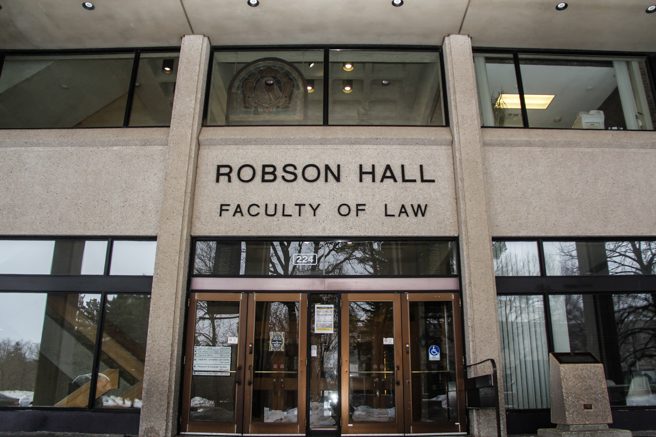In four months – barring unforeseen failure – I will graduate with a Juris Doctor degree from Robson Hall faculty of law. That is seven full-time years and 216 credit hours spent at the University of Manitoba. I want to share a few insights I stumbled upon along the way.
Let’s start with a few misconceptions.
Most people, especially your family, assume that if you get into law school, you will end up with a job that makes a lot of money. In reality, the level of pay varies a great deal depending on the market, sector (profit, non-profit, and government) and area of practise. Even at the biggest corporate firms with the highest salaries, it can take years for a person to pay off their student loans and receive the kind of salary that the general public believes, probably from movies and television, is associated with a lawyer. While Robson Hall faculty of law has one of the lowest tuition rates in Canada , articling students in Western Canada, like Atlantic Canada and Québec, are also paid some of the lowest salaries in the country.
Another misconception is that if you get a law degree, you are guaranteed a job as a lawyer. In actuality, this is false. Canada’s legal market is highly saturated. That means there are more law school graduates than articling positions. While Robson Hall’s career development office generously claims that 92 per cent of the 2012 graduate class secured articling or clerking positions, unemployment is becoming noticeably prevalent according to reports from my peers. A prospective student is left speculating, “Why is faculty’s information five years old?”
In Ontario, as of 2012, approximately 15 per cent of all law graduates do not find articling positions each year. With the exception of Ryerson University’s alternative law practice program in Ontario, students must complete articles with a qualified employer in order to be eligible to practise law. Despite its saturation, Ontario recently added Lake Head University’s Bora Laskin faculty of law in Thunder Bay and is now considering Ryerson University’s application for fully-fledged accreditation.
Finally, I have spoken to many students who feel pressured to go to law school immediately after their undergraduate degree. Many of my colleagues have been successful with this approach. By no means, however, is it better. In fact, in many cases it can be more difficult. Law is a profession of experience. And, while firms can teach you how to practise law, they can’t teach you life experience. Personally, I chose to take three years off to work for the government in between my undergraduate and law degree. So far, this experience has been invaluable to my success in law school.
It is also never too late to go back to school. There are students in their thirties and forties that excel in the program. They are often the most exceptional students because of their experience.
I have also had my own misconceptions and biases about law school.
On the first day of orientation week, we were asked to anonymously write down our expectations for law school. I recall writing down something along the lines of, “I expect this bastion of socialism to attempt to indoctrinate me as a social justice warrior.” I turned the piece of paper over to a colleague of mine completely self-assured and with a smirk on my face.
The truth is, however, after nearly three years attending Robson Hall faculty of law, with the exception of a few instances, I have never felt pressured by my colleagues or professors to adopt their personal political agendas. By and large, the faculty is completely professional. Ironically, it was the professor that, at least on paper, seemed the most likely to have indifference for or opposition to my success who turned out to be the most encouraging, influential, and empowering.
I also came into law school with a great deal of contempt for what I anticipated would be an overly theoretical and impractical curriculum. And, while I continued to be critical of the curriculum, like most things, there are both successes and failures. With the exception of some, such as “Legal Systems,” I have found the majority of courses to be rewarding in their own ways.
This brings me to the good. Now, whether you intend to practise or not, a law degree is one of the most valuable, stimulating, and rewarding academic experiences you can undertake.
Your mind is rewired to engage problems in logical, efficient, and strategic ways. You acquire the ability to understand, explain, and navigate some of the most complex social and economic issues. You are exposed to hundreds of intelligent professors and classmates from a spectrum of ages, expertises, socio-economic statuses, and opinions. This exposure broadens, strengthens, and matures your convictions and arguments. As a result, you learn to admire and respect your opponents and their professional accomplishments. And, at the end of it all, you receive one of the greatest privileges of all – the ability to practise law.
There are undeniable ugly truths about law school. But amidst the bad is an overwhelming amount of good to overcome it.
Kyle G. Mirecki is a third year law student in Robson Hall faculty of law.


